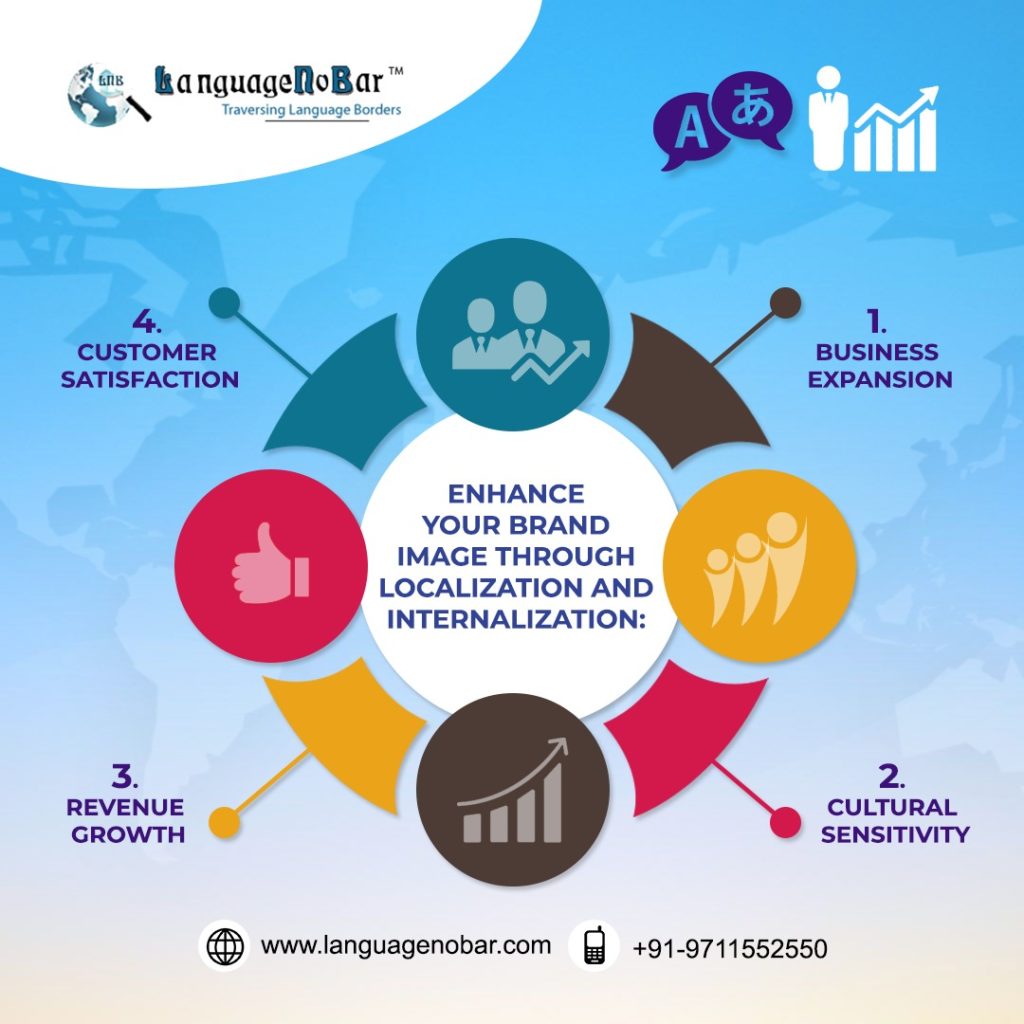Localization and Internationalization: Key to better market expansion
- Translation Services
- Comments (0)
When you sell a product to another market, you want it to resonate with the intended audience. Brands today are connected with consumers on their playing fields by understanding people’s languages, cultures, and traditions.
Localization and Internalization are key to establishing a global identity. But what do these terms actually mean?
LOCALIZATION:
This is the process of taking a product and tailoring it to a specific locale or market. Localization includes all of the components of translation that are required to meet cultural and linguistic adaptations of text. It includes translations and other conversion, and takes into account local practices and culture, providing a product, which is comfortable to use in the target country physically, linguistically, and even culturally. Localization is no longer just an option for companies which want to go global, it is now becoming a must, a strategic plan that can help a brand survive abroad. By localizing your website, products or marketing campaigns, you are building a bridge to your target customers and making your brand more memorable in local markets.
Investing in a professional website or software localization services will benefit you in both short-term and long-term. Localization can entail customization related to:
- Content modification to suit the tastes and consumption habits of other markets
- Design and layout
- Numeric, date and time formats
- Text and graphics containing references to objects, actions or ideas which, in a given culture, may be subject to misinterpretation or viewed as insensitive.
- Use of currency
- Keyboard usage
- Symbols, icons and colors
- Varying legal requirements
INTERNALIZATION:
Internationalization begins at the conceptual stage for brands looking to offer their experience globally. While localization is the process of adapting content into another language and culture, internationalization is the process that enables localization to be carried out effectively. If a company is trying to localize a particular software program, website or app, internationalization enables the software to properly handle the necessary character encodings and language variants.
Internationalization is the process of building your application or product to support multiple languages and writing conventions. Internationalization requires developers to account for localization from the beginning, thus enabling a smoother process down the road.

In the case of software products and electronics, internationalization involves the following practises:
- User interface: If a software application will be translated into multiple languages, the user interface needs to include different formats for the text.
- Separation of the UI elements from source code of content
- Data encoding and hardware support
- Number formats and numeral systems
- Designing proper rendition of characters in various languages, string concatenation etc. which can be done by using Unicode during development
IMPORTANCE OF LOCALIZATION AND INTERNALIZATION:
When selecting a professional translation company in India, one of the most important questions you can ask is whether or not you want your documents or website prepared for internationalization or localization. Here are a few key points that will help you to understand the importance of localization and internalization and how these will boost your brand image:
- Business Expansion
If you are trying to reach out to your local customers, you need to adapt yourself to the language they speak and the perspective they view things. By adapting your product and services to the native market, you break the linguistic and cultural boundaries, which allows your brand to blend in and then stand out.
It is true that market penetration success depends on other factors such as product, price, place and promotion, however, without the aid of localization and internalization, it is more likely that cultural conflicts will block your way before you can step into the market.
- Cultural sensitivity
In some countries, certain colors or expressions have different connotations and meanings. There are certain risks from cultural conflicts when you go global. Your localization and internalization agency can help you stay away from those possible blunders, thus reducing the cultural barriers between the organization and the native users.
- Revenue growth
By communicating with your customers in their own language and creating mutual understanding, you are bound to build trust and commitment with them. This helps in making the user more comfortable when dealing with your brand and making a purchase. The ability to obtain information in their own language urges users to buy any product or services, irrespective of the price and this can enable you to set a pace for your competitors too.
- Customer satisfaction
Localization and internalization thoughtfully refine and adapt the content to suit local culture and create appealing user experience for your diversified target customers. Tailoring your content to the market’s needs is a way to show your customers that you care about them and truly understand what they need. Therefore, your overall customer conversion will increase significantly.

When choosing a language translation service, you have to take into consideration various aspects. LanguageNoBar is a professional Language Service Provider, helping organizations of all sizes by addressing their language access needs, including translation, localization and internationalization. We offer language translation services in 150+ languages and have a team of 10000+ native translators.
Localization and Internalization require careful planning and attention to detail and taking the time to consider these two important elements can give you a competitive advantage and make it more likely that your products and services will be profitable!
Related Blogs:
Ingenious translations happen when the translator grasps the profound meaning of source text
Localisation- what is it and how to localise your content?
Growing opportunities in vernacular Indian languages






